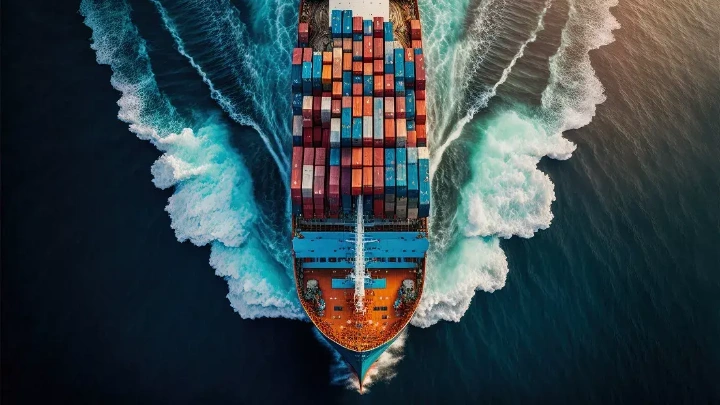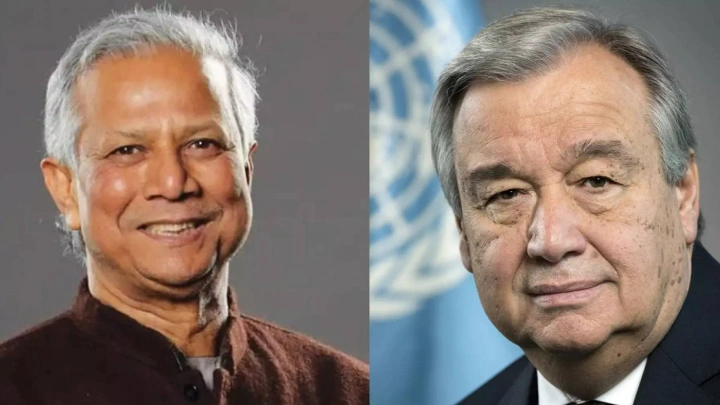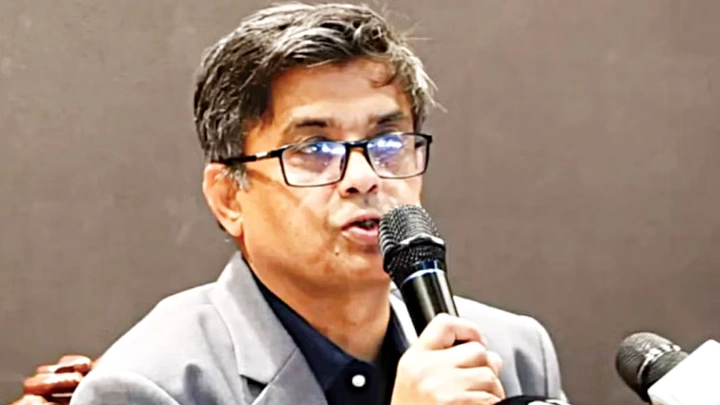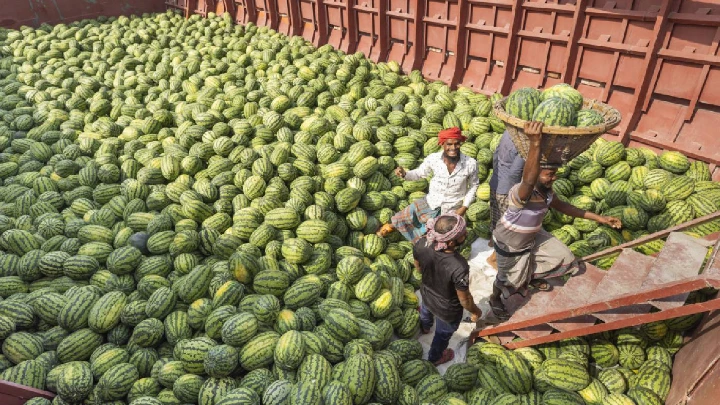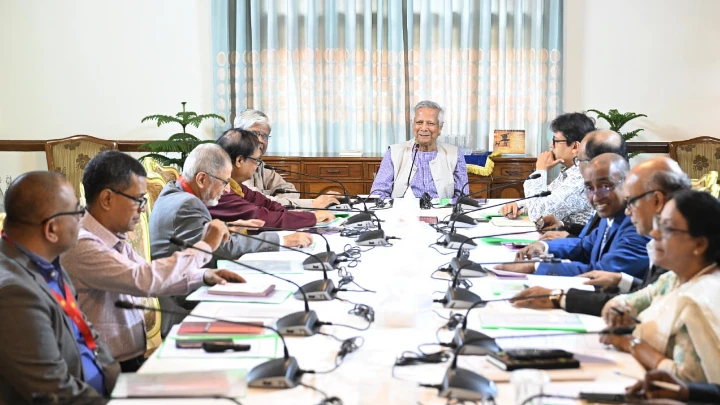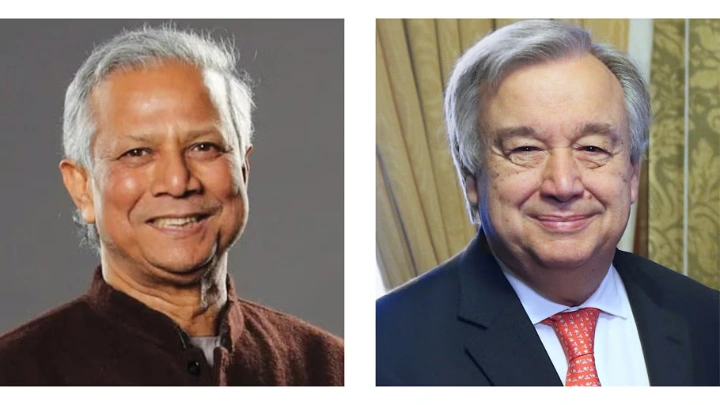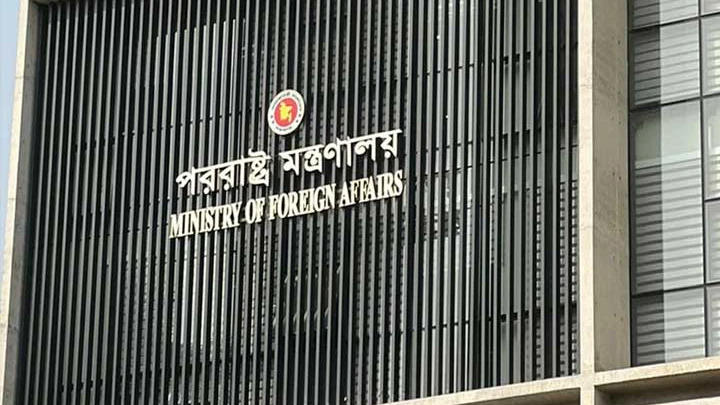Govt urges foreign investors to explore maritime area
NewAge || Shining BD
Bangladesh on Monday urged foreign investors to explore the country’s maritime area through the bidding opened the day before, offering what it said was one of the most lucrative deals in the world.
The bidding, which will close on September 9, has already generated widespread interest among global oil companies, including prominent ones, the power and energy ministry high-ups revealed in a press conference on Monday, without disclosing their names.
Energy experts agreed with the government about the Production Sharing Contract of 2023, on which the bidding is modelled, being too profitable for private investors but differed from the view that suggested it would benefit Bangladesh with all its concessions and tax holidays.
‘It offers one of the most lucrative prices in the world,’ energy secretary Nurul Alam said at the press conference hosted by the national gas and oil company Petrobangla.
‘We don’t want to reveal names but would like to share that some companies have already reached out to us,’ he said.
Petrobangla chairman Zanendra Nath Sarker opened the press conference, announcing that the PSC spared investors payments such as royalty payments, signature bonuses, and any kinds of import duties or taxes.
The investors will need to pay a minimum bank guarantee and can transfer shares, he said, adding that investors can bid for one or more blocks alone or with other companies.
For ensuring a faster return on investment, the PSC offers 75 per cent cost recovery, he said.
A total of 24 offshore blocks are open for bidding, including nine shallow blocks. The shallow blocks are 3m to 200m deep while the deep sea blocks are 201m to 2000m deep.
The price will be linked to oil, meaning that the earlier provision of any cap on the price is no longer there.
Petrobangla officials said that this was a really attractive package, citing the example of Myanmar and Thailand, where companies needed to pay 10 per cent and 20 per cent royalty, respectively.
‘We invite the biggest companies in the world who have experience in maritime exploration to participate in the bidding,’ said power and energy state minister Nasrul Hamid.
Nasrul claimed that the bidding took a while to occur due to disruptions like the Covid-19 pandemic since the last bidding in 2016.
Nasrul thanked stakeholders for their hard work to finally make the bidding happen, including UK-based Wood Mackenzie, a multinational research and consultancy group, whose recommendations shaped the 2023 model PSC.
Bangladesh has so far held seven biddings since 1974 for gas and oil exploration, with the highest number of foreign companies entering production sharing contracts in 1974.
Bangladesh has drilled 97 wells over the past century, finding gas in 29 wells. Bangladesh’s current production capacity is about 2100mmcfd against a demand of about 5000mmcfd.
After a prolonged period of inactivity over exploration, the government passed the 2023 PSC in the election year, months before it assumed power for the fourth straight term.
Despite Bangladesh reportedly sitting on a huge gas reserve being the world’s largest delta, the government spent more money on gas imports rather than investing in the exploration or building the capacity of Bangladesh Petroleum Exploration and Production Company Limited.
‘The bidding is the culmination of a long journey taken by a syndicate of powerful people at home and abroad to get complete control over the natural resource,’ said Anu Muhammad, former member secretary of the National Committee to Protect Oil, Gas, Mineral Resources, Power and Port.
Considering tax holidays and other concessions, on top of the new pricing formula linked to the Brent oil price, the actual price of gas would be higher than the international market rate, he said.
This too lucrative contract, he said, might lead to excessive exploitation of natural resources, eventually leading to a situation where it would have to be exported.
American oil giant ExxonMobil has expressed its interest in exploration in Bangladesh in the election year. Other US multinationals, such as Chevron and ConocoPhillips, are also potential contenders in the bidding.
The power and energy state minister and the power, energy and mineral resources affairs adviser to the prime minister, Tawfiq-e-Elahi Chowdhury, did not answer the question asked about the geopolitical risks involved in inviting foreign companies to the Bay of Bengal.
An enormous gas exploration potential opened up between 2012 and 2014 after Bangladesh won over 20,000sq km in the Bay of Bengal following the settlement of maritime disputes with India and Myanmar.
Immediately after losing its maritime dispute with Bangladesh, Myanmar awarded 20 offshore blocks, mostly in the Rakhine basin off the Arakan coast, south of Teknaf, to international oil companies by 2014.
Of 26 open offshore blocks, Bangladesh has PSC for two shallow sea blocks — blocks SS-04 and SS-09, which ONGC Videsh Ltd and Oil India Ltd are jointly exploring.
The South Korean Posco International exited from block DS-12 in 2020 seeking a gas price hike.
Before exiting, Posco carried out a two-dimensional, or 2D, seismic survey over about 3,580-kilometres area, double the area it committed for the survey, detecting half a dozen potential gas spots.
ConocoPhillips got out of the PSC signed under the 2008 bidding after completing a survey of 5,750-km area in the deep sea blocks DS-10 and DS-11.
US oil giant Chevron has three onshore blocks — 12, 13 and 14 — while Singapore’s KrisEnergy has been producing onshore block 9.
Shining BD

